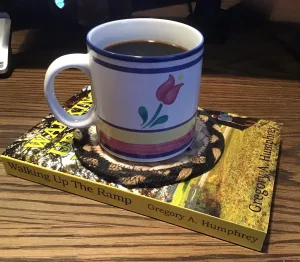
“Bush and I have one thing in common, and that is that we both came in second.”
The laughter that filled the room at the Monona Terrace in Madison following that comment by the Reverend Jesse Jackson Wednesday night had a bittersweet sound as many in the crowd knew in their hearts that the country would have been well served by having him in the Oval Office. Jackson joined about 300 attendees to celebrate the 90th birthday of Madison’s progressive afternoon newspaper, The Capital Times. John Nichols, the associate editor of the paper, held an insightful and illuminating conversation with the civil rights activist, and two time presidential candidate that lasted about an hour.
In the conversation Jackson presented his experiences as a template (my word, not his) for how others could not only run campaigns, but also run the country once elected. And with 20 years for us to reflect on his efforts in 1984 and 1988 to be President, we must admit he presents powerful arguments for his style of campaigning, and the issues he fought for.
The struggles with the power centers within the Democratic Party have frustrated Jackson for many years. While working to elect an African-American mayor in Chicago he was told by the likes of Senators Ted Kennedy and Walter Mondale that they both needed to “support their allies”, meaning they would work for the entrenched Chicago machine candidate. When Jackson heard the “allies” comment he asked them, “Well who are we?” meaning the black voters that had supported the Democratic Party for decades. Years later Jackson would spar with the centrist and mushy Democratic Leadership Council, which was an organization hoping to stem the liberal tendencies of the Democratic Party.
But through it all Jackson understands that counter-culture politics is the force that keeps the nation moving in a progressive direction. Whether it was striving for union rights, civil rights, or health care rights for AIDS patients, the counter-culture politics that he marshalled is the path that he wishes more politicians would embrace.
John Nichols started his introduction for Jackson on Wednesday by describing him as “the most successful diplomat”, and the record of Jackson’s achievements, along with his thoughtful views over the decades, prove Nichols to be correct.
When asked to sum up his diplomatic approach Jackson said, “I tried, I talked, I asked.” The audience understood what he meant. As Jackson spoke of his overseas work the crowd nodded in agreement, and when he mentioned Ronald Reagan and the American flier held captive in Syria in 1983 there was laughter.
Robert Goodman, a Navy flier was being held by President Assad, and Jackson asked President Reagan if he could travel to Syria to seek his release. Reagan told Jackson not to go, but just in case Jackson did go and succeeded, Reagan wanted to make sure Jackson brought Goodman back to the White House for pictures! Jackson used the diplomatic approach he had long advocated; he tried, talked, and asked. In the end a very pleased President Reagan met Goodman at the White House. And as a side note I think we all recall that Jackson looked mighty good on the White House grounds too!
Jackson observed during the conversation with Nichols that American foreign policy is often one of contempt, and not respect for others in the international arena. He urged more discussion among nations, and a deeper appreciation on our part for the rampant poverty that impacts so many around the world.
When asked about the current presidential contest underway in America he had one blunt criticism for Mike Huckabee, the former Governor of Arkansas. Jackson said that it was wrong for Huckabee to attempt to force Mitt Romney to take a religious test. “It is the most unfair part of Huckabee’s campaign.” He then reminded the crowd that most lynchings in the south took place after Church on Sunday’s, and the ones doing it “were not Mormons.”
Wednesday evening as I listened to Jesse Jackson I recalled how during the 1988 presidential election I wore his campaign button on my jacket. I had been a supporter of Jackson in 1984, but was not able to campaign and work in his behalf to the degree I had wished. But in 1988 I was living in Madison, and had more opportunities to help make a difference. At the time I was working with a State Representative from northeast Wisconsin who was more conservative that I was. While with him in the district one day he asked me what his constituents might think about me wearing my Jackson button. I told him that I hoped the voters might ask about Jackson so I could tell them of the message he offered for America. This seemed to make the Representative mighty nervous, as he knew I was serious. He never talked about the button again, though I knew he thought it might harm him among some conservatives.
Now these many years later as I listened to Jesse Jackson speak I am again reminded of how much better off we would all be had he been our President. “Run, Jesse, Run” was more than a slogan in the 1980’s. If was a real piece of hope in American politics. Wednesday night for an hour some of us recalled what hope felt like again.
Technorati Tags: JesseJackson, Madison, Wisconsin, JohnNichols, MikeHuckabee, MittRomney, CapitalTimes, RonaldReagan

